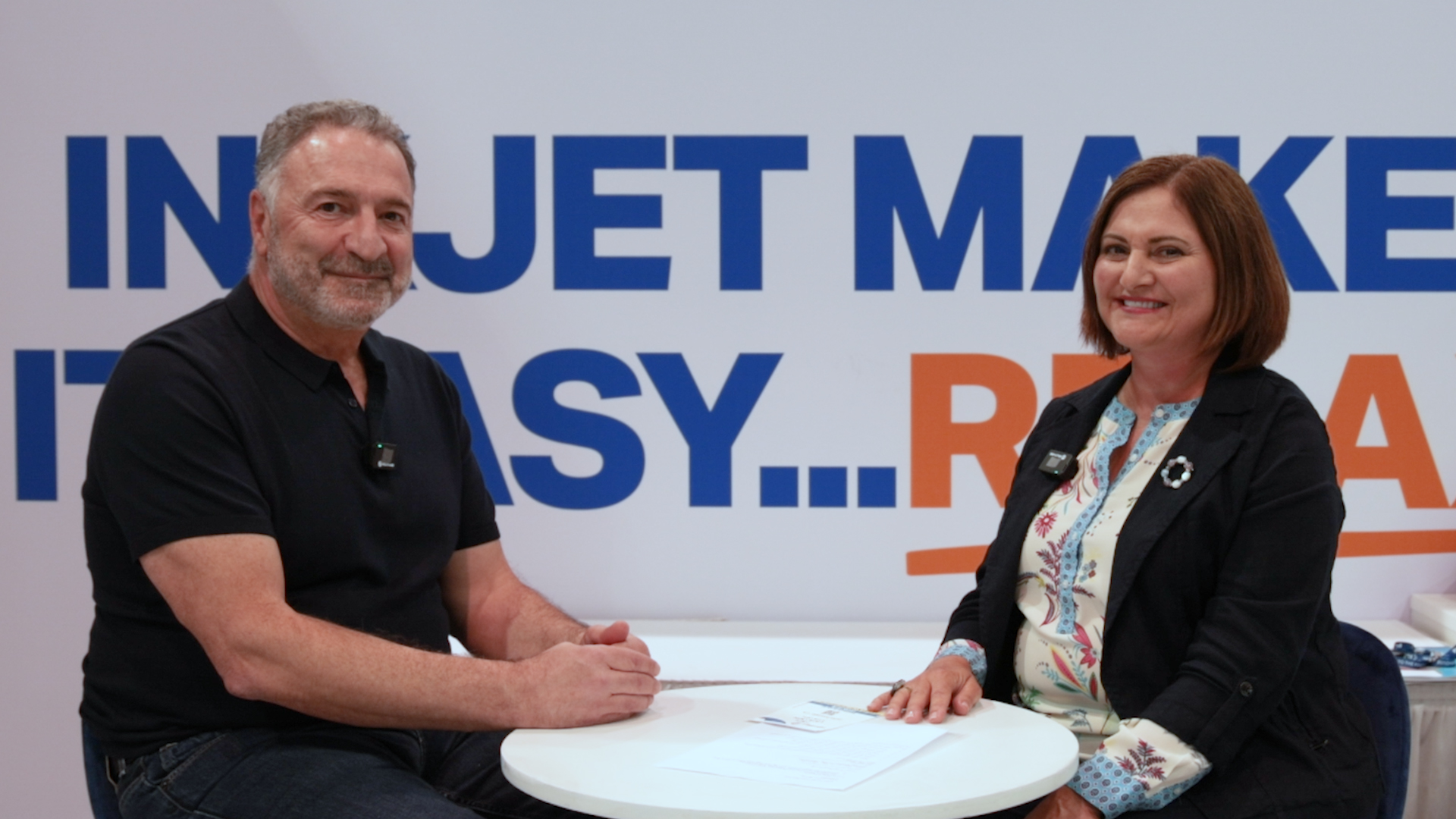The commercial dispute between Kodak and Collins Ink Corporation has escalated into a legal wrangle with Kodak’s filing of a lawsuit that charges the inkjet ink manufacturer with breach of contract.
The suit, filed in U.S. District Court, Western District of New York, on October 17, alleges a variety of harms caused by Collins Ink’s recent move to end a 10-year relationship in which it produced and sold fluids for Kodak’s Versamark continuous inkjet printing system. But, the chief complaint is that by exiting the relationship without giving required notice, Collins Ink threatened Kodak’s ability to keep its Versamark customers adequately supplied.
Among other forms of relief it is seeking in the suit, Kodak wants Collins Ink to be obliged to abide by terms that, according to Kodak, require it to guarantee an uninterrupted supply of ink during a transition period. “We expect it to happen soon,” said Michael Marsh, general manager, Kodak Digital Imaging Systems, of the presumptive granting of an injunction to this effect.
In the meantime, said Marsh, “we will continue to put customers first” by doing whatever it takes to assure them of obtaining the Versamark inks in the quantities they need. “We don’t want to put any of our customers at risk,” he emphasized.
At the time it terminated the agreement with Kodak, Collins Ink was producing most of the ink used by Versamark customers, including 100% of spot-color formulations. Marsh said that Kodak was prepared to fully replace Collins Ink’s volume with its own production, although there could be some delay in supplying spot colors.
Under the agreement, Collins Ink sold Versamark inks under both brand names, and Kodak was the exclusive seller of Collins-branded Versamark inks. Having ended the relationship, the Cincinnati, OH, ink maker now competes with Kodak as a seller of Versamark fluids bearing the Collins Ink brand.
Kodak’s suit claims that as a result of the alleged breach of contract by its erstwhile partner, “Kodak has been left defenseless as Collins Ink and other competitors prey on former Kodak inkjet customers presently unable to have their ink orders fulfilled by Kodak.” This would not have happened, the suit says, if Collins Ink had given Kodak the 180 days notice required for termination under the original agreement.
The suit also claims that Collins Ink’s abandonment of the Versamark agreement was triggered by Kodak’s refusal to let it take part in the development of inks for the Prosper printing system, Kodak’s next-generation continuous inkjet platform. But this allegation, like the rest of Kodak’s charges relating to breach of contract, is roundly rejected by Collins Ink.
The ink maker severed its tie with Kodak in order to protect itself against “Kodak’s deteriorating financial condition,” said Lawrence Gamblin, president and founder of Collins Ink.
Claiming that he has openly expressed concern to Kodak about its “financial exposure” throughout the year, Gamblin said that the lawsuit misrepresents the both the timing and the strategy of Collins Ink’s exit from the agreement.
Kodak, according to Gamblin, “is trying to paint this as some arbitrary event.” But the termination, he said, was a defensive step that Collins Ink felt forced to take as a holder of receivables from a financially troubled customer.
“This isn’t sudden,” he said. “We can’t ship out inks not knowing if we’ll get paid. It appears very likely that we won’t get paid for production shipped to them.”
“If we lose $2 million to $3 million of receivables because Kodak declares bankruptcy, that’s a real impact for us,” Gamblin said.
The suit calls Gamblin’s fears groundless and maintains that an attempt by Collins Ink to accelerate payment from Kodak had a different motive.
“Collins Ink’s goal was to force Kodak to allow Collins Ink to participate as Kodak’s supplier in the potentially lucrative Prosper ink manufacturing market,” the filing states. “Collins Ink had no legitimate concern over repayment from Kodak, but rather concocted its complaints over payment terms to pressure Kodak into granting this concession.”
As for the prospect of bankruptcy, Phil Faraci, Kodak’s president and COO, recently stated that Kodak does not intend to seek this form of protection. “Kodak has no interest in filing for bankruptcy,” he said. The company, reportedly under mounting pressure from holders of its debt, was said by Faraci to be exploring the sale of part of its intellectual property (i.e., patents) in digital imaging as a way to raise cash.
Marsh said that although Collins Ink’s unhappiness about being excluded from the Prosper business might account for some of its behavior, Kodak still is at a loss to understand why the ink maker abandoned a previously friendly relationship “virtually overnight.” Without technical support from Kodak, Marsh said, Collins Ink is incapable of developing inks for the Prosper system on its own.
This is dismissed by Gamblin, who said that Collins Ink has been working on formulations for Prosper for the last six months and intends to bring Prosper fluids to market. “It can be done, and we are doing it,” he said.
Gamblin also said that in notifying Kodak of Collins Ink’s decision to end the agreement, he offered an accommodation (“a figurative life preserver”) that would have assured transitional supplies of Versamark inks in return for prepayment.
Kodak, unmoved, wants Collins Ink to deliver the fluids as per the terms of the original agreement.
Besides injunctions that would prevent Collins Ink from treating the agreement as terminated, the suit seeks the award of damages at trial for breach of contract; unfair competition; misappropriation of trade secrets; “tortious interference with prospective business relations”; and unjust enrichment. It also would compel Collins Ink to return all Kodak equipment, intellectual property, and proprietary know-how in its possession.
The ideal solution, Marsh said, would be for Collins Ink to agree to continue a relationship that has, in Kodak’s view, served all parties well. “They should abide by the agreement,” he said. “It’s just that simple. Our customers will be whole, and so will we.”
Absent an order from the court, however, a resumption of that cooperation appears unlikely. “We can make inks for the whole market now,” Gamblin said. “From a legal standpoint, we’re on a very strong footing with what we did.”















Discussion
Only verified members can comment.